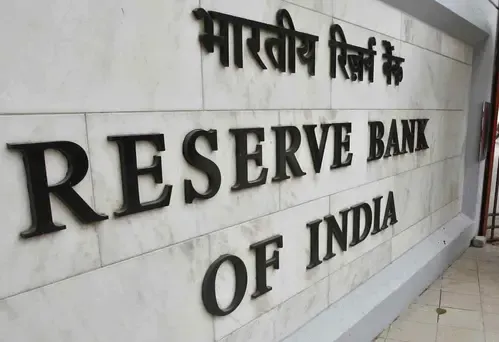Why Did RBI Impose Penalties on Two Co-operative Banks?

Synopsis
Key Takeaways
- RBI imposed a fine on Shree Kadi Nagarik Sahakari Bank for donations violations.
- Saibaba Nagari Sahakari Bank was penalized for KYC non-compliance.
- Both penalties highlight the importance of regulatory adherence.
- RBI's actions aim to ensure consumer protection.
- Further actions may follow if non-compliance continues.
Mumbai, June 30 (NationPress) The Reserve Bank of India (RBI) has taken significant action by imposing monetary penalties on two co-operative banks due to their failure to adhere to regulatory guidelines. On June 26, a fine of Rs 14.30 lakh was levied on Shree Kadi Nagarik Sahakari Bank Limited, located in the Mehsana district of Gujarat.
This penalty was imposed for breaching RBI's rules regarding donations to trusts and organizations where directors or their relatives hold an interest, as well as for issues related to the management of advances by urban co-operative banks (UCBs).
As part of a statutory inspection conducted on the bank's finances as of March 31, 2024, the RBI discovered that the bank had made donations to a trust linked to a relative of one of its directors.
Furthermore, the bank failed to adequately monitor the purpose for which certain loans had been granted.
After evaluating both the bank's written response and oral arguments, the RBI determined that the violations were serious enough to warrant a monetary penalty.
In a separate instance, the RBI also penalized Saibaba Nagari Sahakari Bank Maryadit in Sailu, Maharashtra, imposing a fine of Rs 50,000. This penalty, which was announced on June 24, was due to non-compliance with Know Your Customer (KYC) guidelines.
The RBI found that this bank had neglected to upload KYC records for some customers to the Central KYC Records Registry (CKYCR) within the mandated timeframe and had not performed necessary periodic updates of KYC records as required.
These issues were identified during a statutory inspection of the bank's operations as of March 31, 2024.
The RBI emphasized that these penalties are based on shortcomings in regulatory compliance and do not cast doubt on the legitimacy of any specific customer transactions or agreements.
Moreover, the central bank stated that these actions do not preclude the possibility of further actions against the banks if warranted.









